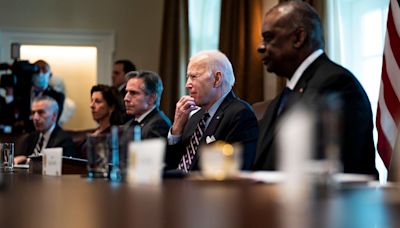Search results
American lawyer and politician
- John Jacob Rhodes Jr. (September 18, 1916 – August 24, 2003) was an American lawyer and politician. A member of the Republican Party, Rhodes served as a U.S. Representative from Arizona for thirty years. He was the minority leader in the House of Representatives from 1973 to 1981 and pressed a conservative agenda.
en.wikipedia.org › wiki › John_Jacob_Rhodes
People also ask
Who was John Jacob Rhodes?
Who was Cecil John Rhodes?
What did Rhodes do for South Africa?
How did Cecil John Rhodes die?
Mar 26, 2015 · A British Businessman in South Africa, Member of Parliament in the Cape Colony, Prime Minister of the Cape Colony, imperialist, acquired a British Royal Charter, formed the British South African Company (BSAC) that colonized Zimbabwe. First Name: Cecil John. Last Name: Rhodes. Date of Birth: 5 July 1853. Date of Death: 26 March 1902.
- Overview
- Early struggles and financial successes
Cecil Rhodes, (born July 5, 1853, Bishop’s Stortford, Hertfordshire, England—died March 26, 1902, Muizenberg, Cape Colony [now in South Africa]), financier, statesman, and empire builder of British South Africa. He was prime minister of Cape Colony (1890–96) and organizer of the giant diamond-mining company De Beers Consolidated Mines, Ltd. (1888)....
Rhodes was the son of the vicar of Bishop’s Stortford, and the family’s roots were in the countryside, where Cecil Rhodes always felt at home: tree planting and agricultural improvement were among his lifelong passions, though his earliest ambition was to be a barrister or a clergyman. His father was prosperous enough to send one son to Eton College, another to Winchester College, and three into the army. Cecil, however, was kept at home because of a weakness of the lungs and was educated at the local grammar school. Poor health also debarred him from the professional career he planned. Instead of going to the university, he was sent to South Africa in 1870 to work on a cotton farm, where his brother Herbert was already established.
The farm in Natal was not a success. On his arrival Rhodes found that his brother had already left for the diamond fields of Griqualand West. Although Herbert returned to the farm, and the two brothers continued stubbornly trying to grow cotton for a year, the “diamond fever” eventually overcame them. In 1871 they moved to Kimberley, the centre of mining, where life was even harder than in Natal. Herbert was restless and stayed only until 1873, but Cecil’s characteristic determination kept him at Kimberley off and on for years.
For eight years, until he took a belated degree in 1881, he divided his life between Kimberley and Oxford. Both societies found him odd, though he did his best to conform outwardly to the conventions. At Oxford his eccentric habits, falsetto giggle, rambling monologues, and unusual background intrigued the younger students around him. So did his philosophy of an almost mystical imperialism.
He gradually advanced from being a speculative digger to the status of a man of substance with ambitious ideas on the future of the diamond industry. His first partnerships were with young men as impoverished as himself, such as C.D. Rudd, with whom he formed De Beers Mining Company (1880)—so called after the De Beers mining claims, many of which he had acquired. Eventually success brought new friends and also rivals. Alfred Beit, a German who knew the diamond market intimately, was his most-valued friend. With Beit’s help, Rhodes expanded his claims until all the De Beers mines were under his control. In 1887 he set about acquiring the Kimberley Central Diamond Mining Company, which was mainly controlled by Barney Barnato. A furious competition to buy up shares ended in Rhodes’s favour in 1888, and Barnato agreed to merge his company with Rhodes’s company, forming De Beers Consolidated Mines, Ltd. However, several minor shareholders in Barnato’s company were not in favour of the planned amalgamation and tried to halt the merger in court, which found in favour of the shareholders. To work around the ruling, Barnato and Rhodes, who by then controlled most of the shares in Kimberley Central, liquidated the company. De Beers Consolidated Mines, Ltd., then purchased Kimberley’s assets for more than £5 million ($25 million), which was paid out, in part, to the aggrieved shareholders.
Other lesser mines also fell under Rhodes’s control, until by 1891 De Beers Consolidated Mines, Ltd., owned 90 percent of the world’s production of diamonds. He also acquired a large stake in the Transvaal gold mines, which had been discovered in 1885, and formed the Gold Fields of South Africa Company in 1887. Both Rhodes’s major companies had terms in their articles of association allowing them to finance schemes of northward expansion.
Students save 67%! Learn more about our special academic rate today.
- Christopher Montague Woodhouse
May 8, 2024 · Cecil John Rhodes is a historical figure who has generated huge amounts of debate, not just in South Africa, where he lived much of his life, but across much of the Anglosphere, where his name continues to bear considerable weight and influence.
- Greg Beyer
Cecil John Rhodes ( / ˈsɛsəl ˈroʊdz / SES-əl ROHDZ; 5 July 1853 – 26 March 1902) [2] was an English mining magnate and politician in southern Africa who served as Prime Minister of the Cape Colony from 1890 to 1896.
John Jacob Rhodes Jr. (September 18, 1916 – August 24, 2003) was an American lawyer and politician. A member of the Republican Party, Rhodes served as a U.S. Representative from Arizona for thirty years.
May 29, 2018 · The English imperialist, financier, and mining magnate Cecil John Rhodes (1853-1902) founded and controlled the British South Africa Company, which acquired Rhodesia and Zambia as British territories.




